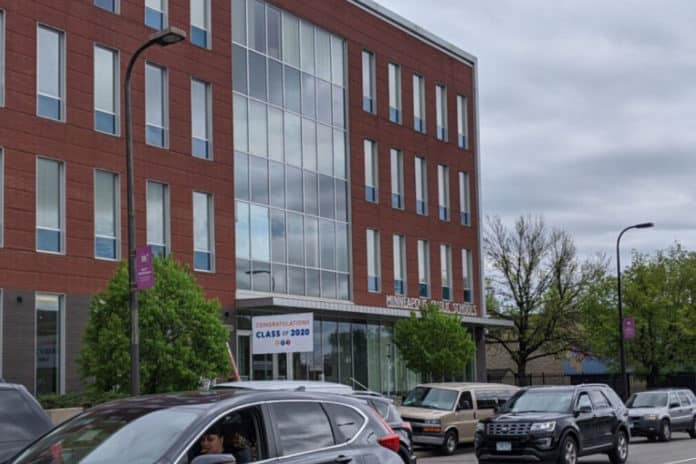(Daily Caller News Foundation) — At least 10 elementary and high schools in the Minneapolis public school district and St. Paul public school district in Minnesota did not have a single student meet grade-level expectations in math during the 2021-2022 school year, according to a Wednesday report by the Center of the American Experiment, an organization focused on state public policy.
Statewide, 19 schools did not have one student test proficient in math on the 2022 Minnesota Comprehensive Assessment, a standardized test used to determine what students have learned, according to a Center of the American Experiment report. Of elementary schools in the Minneapolis and St. Paul school districts, seven did not have a single student meeting grade level expectations in math.
“As of the start of the 2022 school year, fewer than half of Minnesota students statewide are proficient in math (44.6 percent), and just under 50 percent can’t read at grade level,” Catrin Wigfall, the author of the report, wrote. “On national assessments, Minnesota reading and math scores are the lowest they have been in 30 years.”
Of the 19 schools, six were traditional public schools, two were online public schools and 11 were public charter schools, the report stated. No students were proficient in reading at one of the traditional public schools.
“Defenders of the current system will likely point to COVID as the driving reason, and while school closures certainly exacerbated learning loss, poor and declining student achievement showed itself way before the pandemic,” Wigfall wrote.
BREAKING: In 19 public schools across the state, not a SINGLE STUDENT could do grade-level math during the 2021-22 school year. https://t.co/cIb55vbZeR
— Center of the American Experiment (@MNThinkTank) March 1, 2023
The report is released as the nation’s students suffer historic learning losses; every state has seen its first ever drop in K-12 math scores. In 2022, the nation’s reading scores dropped to fall in line with numbers from 1990.
“The bottom line is everyone suffered in the pandemic … because of the pandemic,” Randi Weingarten, president of the American Federation of Teachers, said in October. “The disruption was everywhere, and it was bad regardless of whether schools were remote or in person. We are focused now on the urgent need to help kids recover and thrive.”
The Minneapolis and St. Paul school districts did not immediately respond to the Daily Caller News Foundation’s request for comment.
















